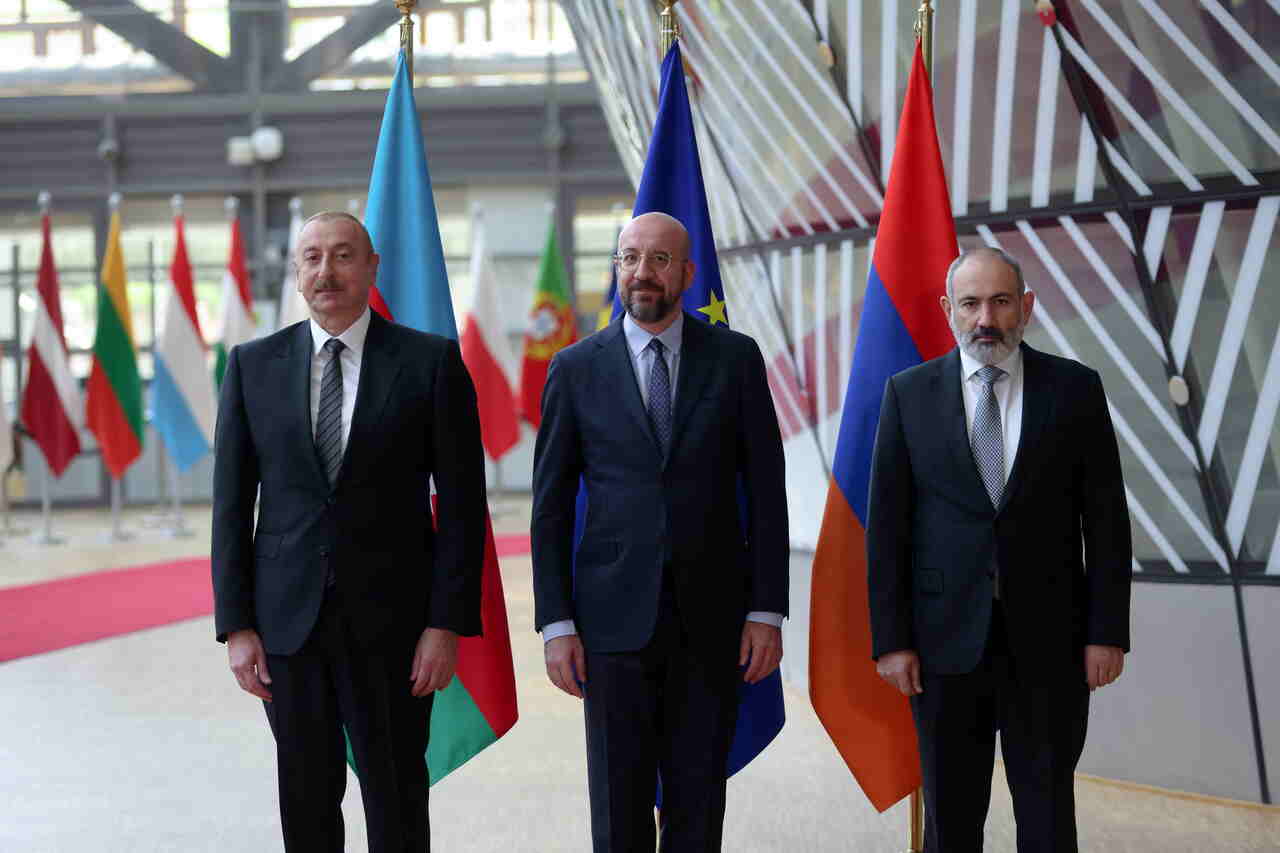Azerbaijan Escalates, Takes Control of Nagorno-Karabakh
On 19 September, Azerbaijan resumed military operations against the separatist Nagorno-Karabakh Republic. It described them as a “local anti-terrorist operation aimed at restoring constitutional order within Azerbaijan”. After 24 hours of fighting, a ceasefire was signed under the auspices of Russian peacekeepers. The following day, negotiations began between Karabakh Armenians and Azerbaijanis to de facto liquidate the separatist republic.
.jpg) IRAKLI GEDENIDZE / Reuters / Forum
IRAKLI GEDENIDZE / Reuters / Forum
What happened?
Azerbaijan justified its action by the need to destroy military infrastructure in Nagorno-Karabakh. The country’s Foreign Ministry announced that in recent days there had been incidents on the border between Azerbaijan and the unrecognised republic, resulting in the deaths of several Azerbaijani police and civilians (who were said to have encountered mines, which the Azerbaijanis accused Karabakh Armenians of deploying). The fighting in this latest incident lasted for 24 hours. As a result, according to the Karabakh side, about 200 Armenians were killed and more than 400 wounded. The ceasefire, announced on 20 September at the request of the Karabakh side, was negotiated with the support of the Russian peacekeepers who have been stationed in Nagorno-Karabakh for three years under an agreement ending the so-called Second Karabakh War. The following day, talks took place between representatives of Nagorno-Karabakh and the Azerbaijani authorities on the capitulation of the Karabakh side, the dissolution of the separatist republic’s structures, and Azerbaijan’s assumption of control over the territory.
What will be the consequences of the escalation?
Azerbaijan most likely decided to use force because of a lack of prospects for success in the protracted peace talks with Armenia over the status of Karabakh, the rights of the local population, the delimitation of the Armenian-Azerbaijani border, and the unblocking of transport corridors. The positions of Armenia and Azerbaijan in the talks remained divergent. By invading Nagorno-Karabakh, Azerbaijan wanted to force Armenians (both Karabakh and Armenian government representatives) to make concessions, which they did. The consequences of the events of recent days will be far-reaching. The Nagorno-Karabakh Republic will cease to exist. Azerbaijan has offered the local population (officially 120,000 people, but in reality less) to remain in Nagorno-Karabakh on condition of accepting Azerbaijani citizenship or to leave their homes, probably for Armenia. An exodus of Armenians from Nagorno-Karabakh is to be expected.
Why did the Russian peacekeepers not respond?
The Russian peacekeepers number about 2,000 but were unable to stop the Azerbaijani offensive. Their passivity was also evident when they failed to prevent Azerbaijan from blocking the Lachin Corridor connecting Armenia and Nagorno-Karabakh, which Armenia claimed. Only on the second day of fighting, after Azerbaijan had achieved its intended goals, was a ceasefire called with the mediation of the Russian peacekeepers.
Russia’s ineffectiveness in mediation of the Nagorno-Karabakh conflict is due to two issues. First, Russia is focused on the war in Ukraine, and second, it is averse to Nikol Pashinyan’s rule in Armenia and irritated by his criticism and threats of Armenia’s withdrawal from the Collective Security Treaty Organisation (CSTO). Azerbaijan’s seizure of Karabakh strengthens the country, as well as allied Turkey, and weakens Russia, which has lost a tool of influence over both Azerbaijan and Armenia.
What do these events mean for Armenia?
Determining the status of Nagorno-Karabakh could, on the one hand, become a step toward ending the more than three-decade-long dispute with Azerbaijan, which has isolated Armenia in the South Caucasus region and hampered its economic development. On the other hand, it raises a number of problems. First, several thousand Karabakh Armenians will likely flee to Armenia, requiring the Armenian authorities to find housing and provide them with a livelihood. Second, the loss of Nagorno-Karabakh could lead to further civil unrest in Armenia, which in the most extreme scenario could result in the fall of Pashinyan’s government. Anti-government protests in Yerevan have been ongoing for three days. Third, Azerbaijan may force the Armenian authorities to open the Zangezur transport corridor, extraterritorial in nature, connecting Azerbaijan proper with its exclave Nakhichevan, which would violate Armenia’s territorial integrity.
What should the EU do?
After the Azerbaijani offensive began, European Council President Charles Michel appealed to the Azerbaijani authorities to stop it immediately and return to peace negotiations. In the near term, the EU should demand security guarantees from Azerbaijan for the Karabakh Armenians. It should also engage in continuing the negotiations between Armenia and Azerbaijan to comprehensively resolve the problems between them. Before Azerbaijan decides to use force again, this time against Armenia itself, the EU should threaten to impose sanctions that include halting imports of natural resources. This seems unlikely, however, given that EU Member States’ interests include importing oil and gas from alternative sources to Russia, sanctioned because of its aggression against Ukraine.
The EU also should demonstrate further financial support for the reception of Karabakh Armenians in Armenia. The European Commission has decided so far to allocate half a million euros for humanitarian support in Karabakh.



